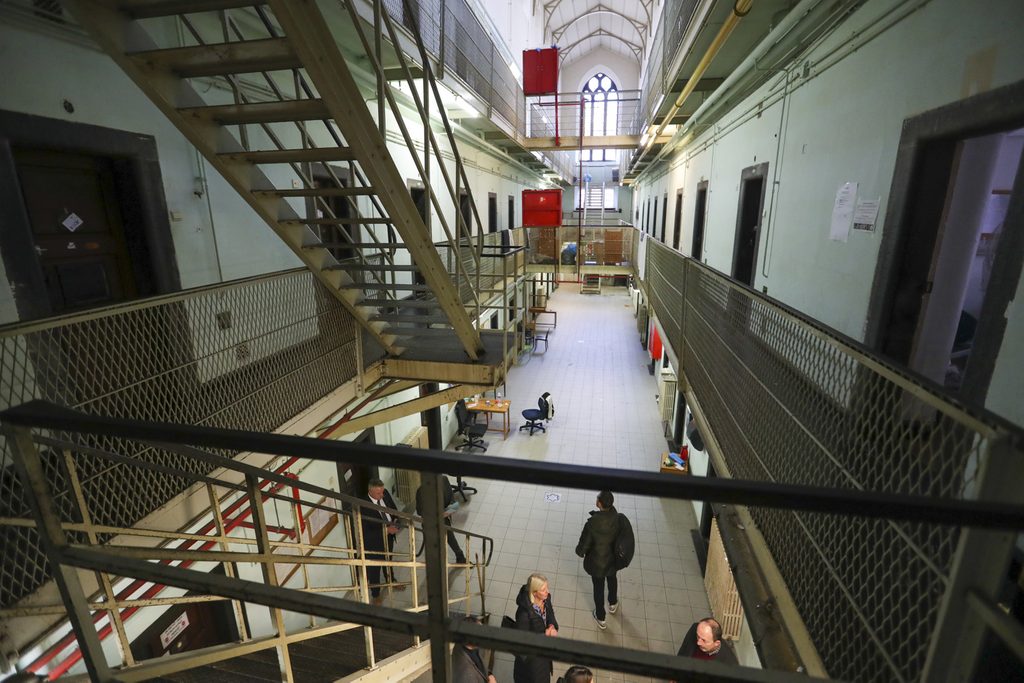Increased security regimes in Belgian prisons already exist for certain inmates – from those posing a danger to their fellow inmates or staff to convicted terrorists – but as more people are jailed for organised crime and drug trafficking, this regime is being extended to include so-called "heavy profiles."
With the increased security regimen, Justice Minister Paul Van Tigchelt wants to prevent the leaders of these networks from continuing their criminal activities inside the prison walls.
"There are hundreds of suspects and convicts in our prisons who are part of organised crime. We have also already detained a number of alleged leaders in our prisons," said Van Tigchelt in a press release. "We should not be naive, we know that they are trying to continue their criminal activities from prison. We cannot accept that."
"That is why we want to introduce a heightened security regime for certain key figures from these criminal networks, as exists abroad," he said. In practice, this means more checks, more isolation and less privacy for the absolute leaders. "This way, we want to permanently cut their ties with the criminal world outside prison and stop their disruptive impact on society."
Smartphones and drugs
The special security regime now provided in prisons is imposed only exceptionally for a limited number of detainees. Still, it is vital for the protection of both inmates and prison staff: it helps prevent violent confrontations between detainees and creates a safer environment inside prison walls. It also prevents terrorism convicts, for example, from continuing to pose a threat to society by spreading radical ideas.
At the same time, however, there is a risk that inmates continue their criminal activities within prison walls, not least among those convicted of or suspected of acts of organised crime.
Many of the intercepted Sky ECC messages, for example, suggest that criminal activities are continued during incarceration. This is also evident from the sharp rise in the number of smartphones (and packages with drugs) thrown over prison walls.
Under the current security system, when a detainee poses a security risk, they are placed under a security regime by the prison director for one week. This means that the detainee's usual rights are restricted: no participation in group activities, systematic monitoring of correspondence, restriction of visits, or partial denial of the use of the telephone.
Related News
- 'This is a global problem': Brussels drug violence must be tackled internationally
- Port security law extended due to drug crime shifting to inland shipping
- Brussels drug violence 'to get worse before it gets better,' Justice Minister says
If this regime is extended three times (meaning the detainee is still monitored in this stricter security regime after a month), the Director-General decides whether to extend the regime and if so, under what conditions.
With the new special security regime – approved by the Council of Ministers in January 2024 – profiles with a potentially significant role in criminal organisations will also be able to be placed directly under a security regime by the Director-General, if the federal prosecutor or intelligence services deem that external risks require this measure.
Detainees will not be able to appeal this decision. The usual conditions may apply, but there may also be additional restrictions, such as permanent camera observation, the exclusion of the right to visit, or the right to undisturbed visits of all or some visitors.
The legal framework for this increased regime was approved by the Council of Ministers on first reading, and has now been handed over to the Council of State for its opinion.

